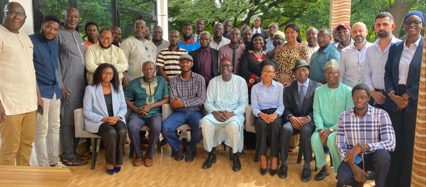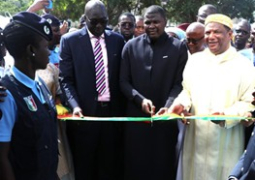
The regulations aim to ensure fair rate of return for investors, rapid deployment of broadband services both urban and rural Gambia, promotion of healthy competition amongst firms, sustainable and progressive entry of new firms into the market.
Speaking at the validation, Dr. Njogou Bah, director general of PURA, said it was a crucial step in ensuring that those regulations not only meet the current needs of their sector but also position them well for the future.
PURA DG said the goal was to benefit the consumers who rely on their services for their day-to-day activities.
“Infrastructure sharing is a key component in the evolution of our digital economy”, DG Bah said, adding that “it promotes the optimal use of resources, reduces duplication, and enables service providers to reach underserved areas more efficiently”.
He said infrastructure sharing was about fostering collaboration over competition, creating a level playing field where both large and small players can thrive.
Dr Bah continued that the resulting document reflected their devotion to creating a regulatory environment that balances the interests of all stakeholders, service providers, consumers, and regulators alike.
Rodine Renner, director of Information and Communication Technology, PURA, acknowledged the intervention of the World Bank to engage in a consultancy for infrastructure to conduct a study on infrastructure sharing between the service providers.
He said the arrangement helps service providers to minimise the amount of money they spend on infrastructure and instead spend it on their core activity to improve the quality of service of their networks for the benefit of their consumers.
According to PURA, a public consultation on infrastructure sharing analysis showed that the Gambia revealed a relatively low level of infrastructure sharing, with only 23% of the total pylons being either shared or rented, while some operators were actively engaged in sharing arrangements.




